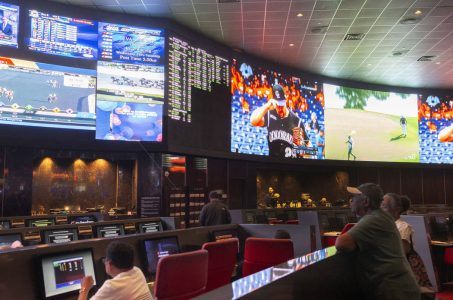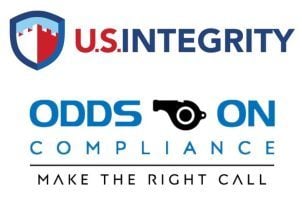Caesars Wins US Antitrust Approval for William Hill Takeover, Eyes March Completion
Posted on: December 28, 2020, 04:29h.
Last updated on: December 28, 2020, 04:58h.
Caesars Entertainment (NASDAQ:CZR) said Monday it cleared the antitrust waiting period for its proposed $3.69 billion acquisition of William Hill (OTC:WIMHY), putting it one step closer to creating a US sports betting behemoth.

Under the Hart-Scott-Rodino Antitrust Improvements Act (HSR Act), there are stretches of time when mergers and acquisitions are examined for potential anti-competitive conflicts. But Caesars cleared that regulatory hurdle sooner than expected.
Caesars continues to progress through obtaining all necessary regulatory approvals required to close the transaction and is still aiming to complete the proposed combination in March 2021,” according to a statement issued by the Nevada-based casino operator.
After suggestions from the analyst community about a creating a joint venture with a spin-off to public investors, reports surfaced in early September that Caesars and William Hill were in talks to combine their online casinos and sports wagering businesses.
Several weeks later, the British bookmaker confirmed it had multiple offers on the table and ultimately accepted a $3.69 billion proposal from the Harrah’s operator.
Long Road, More Regulatory Steps
Some William Hill investors said that offer is too low. But higher, competing bids may have fallen apart, because if the target accepted one, Caesars said it would end its US agreement with the UK-based company whereby the latter runs the former’s sportsbooks. That accord dates back to an arrangement William Hill had with the old Eldorado Resorts, the company that acquired Caesars for $17.3 billion in July.
Had the pact providing a significant portion of William Hill’s access to the fast-growing US market been scrapped, that could have made the target less appealing for some suitors.
From here, Caesars must still procure approvals from the Indiana Gaming Commission, Nevada Gaming Control Board, Nevada Gaming Commission, New Jersey Division of Gaming Enforcement and Casino Control Commission, and the Pennsylvania Gaming Control Board — all regulatory agencies management is familiar with from the Eldorado merger — to finalize the William Hill buy.
“Additionally, the combination requires the English High Court’s final approval and administrative and post-closing approvals from other US agencies,” according to the statement.
What’s Next
With Caesars divesting smaller regional casinos across the country, including in some of the markets mentioned above, and with plans to confine William Hill branding to properties that don’t bear the Caesars name, state regulatory approvals should be relatively easy to come by.
The buyer is also expected to swiftly sell William Hill’s international operations, which could command $2 billion or more, helping Caesars offset a healthy portion of the purchase price.
“Together with iGaming, which is currently outside the scope of the joint venture, Caesars expects that the enlarged sports and online gaming business in the US could generate between US$600-US$700 million in net revenue in FY2021 (on a pro-forma basis),” according to the Flamingo operator.
When William Hill comes into the fold, internet casino and sports betting units will be combined, creating an online wagering powerhouse.
In the US, William Hill is the third-largest online sports wagering company behind FanDuel and DraftKings.
Related News Articles
Penn National Buying Score Media for $2B in Canada, Tech Access Push
U.S. Integrity, Odds on Compliance Form Sports Betting Compliance Giant
Most Popular
Mirage Las Vegas Demolition to Start Next Week, Atrium a Goner
Where All the Mirage Relics Will Go
Most Commented
-
Bally’s Facing Five Months of Daily Demolition for Chicago Casino
— June 18, 2024 — 12 Comments
















No comments yet